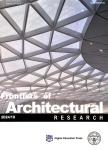Interpretation of appropriate places: State ceremonies and the imperial main halls of the Tang and Song dynasties
作者机构:School of Archaeology and MuseologyPeking UniversityBeijing 100871China School of ArchitectureSoutheast UniversityNanjing 210096China Member of Key Scientific Research Base of Traditional Wooden Architecture(Southeast University)State Administration for Cultural HeritageNanjing 210096China
出 版 物:《Frontiers of Architectural Research》 (建筑学研究前沿(英文版))
年 卷 期:2022年第11卷第6期
页 面:1007-1029页
核心收录:
学科分类:0601[历史学-考古学] 060107[历史学-文化遗产与博物馆] 06[历史学] 060207[历史学-专门史] 07[理学] 08[工学] 083304[工学-城乡发展历史与遗产保护规划] 0712[理学-科学技术史(分学科,可授理学、工学、农学、医学学位)] 0602[历史学-中国史] 0833[工学-城乡规划学]
主 题:Ritual function Architecture and ritual Chinese architecture Architectural meaning Form and function
摘 要:This paper aims to inquiry on the dialectical relationships between Chinese architecture’s form and function in the horizon of long-term historical evolution,by clarifying how the histories of imperial main halls and state ceremonies relate to and interact with each other during the Tang and Song *** imperialmain halls are themost archetypical and accomplished ones among traditional Chinese buildings,and their function is primarily ritual rather than *** these magnificent buildings are indisputably considered the crowning achievement of Chinese architectural history,how the built space cooperates with ritual practices did not receive deserved *** the thorough reading of voluminous official ritual documents and comprehensive utilization of archaeological discoveries together with visual materials,the research presents a broad understanding of the asynchronous developments of the ground-level architectural arrangement and the ritual configuration across these *** specifically depicted are details of how architecture engaged in the ritual narration and was used as an apparatus to articulate emperor-courtier relationships.



